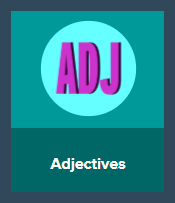Word Changes: Parts of Speech

Language (11-12.4)
Determine or
clarify the meaning of unknown and multiple-meaning words and phrases based on
grades 11–12 reading and content, choosing flexibly from a range of strategies.
b. Identify and correctly use patterns
of word changes that indicate different meanings or parts of speech.
Let's Practice: Key Terms
Section A: Parts of Speech – Nouns and Verbs
Every word
can be classified as a part of speech; in fact, sometimes two depending on how
it is being used. Language can be very
flexible, and words can stretch and change to do different jobs. English is filled with many quirks. There is not just one pattern for changing word
forms. There are multiple rules,
versions, and spelling forms of words.
Verbs can
turn into nouns by adding letters to the ending of the word. Look below at the examples.
|
Verbs à
Nouns |
|
· Some
verbs add the ending – er and or to make it a noun o paint à painter o act à actor · Some verbs add the ending – ation to make it a noun o augment à augmentation o proliferate à proliferation · Some verbs add the ending – ence to make it a noun o acquiesce à acquiescence o concur à concurrence · Some verbs add the ending –ment to make it a noun o harass à harassment o chastise à chastisement · Some verbs add the endings – ry and ery
to make it a noun o reveal à revelry o eat à eatery |
Let's Practice: Verbs into Nouns
Nouns can
turn into verbs by adding and losing endings to become simpler verb forms. Look below at the examples.
|
Nouns à
Verbs |
|
· Some
nouns add the ending – ize to make it a verb o publicity à publicize o alien à alienate · Some nouns lose the ending to make it a noun o justification à justify o adherent à adhere |
Let's Practice: Nouns into Verbs
Section B: Parts of Speech – Adjectives
Adjectives
can change into word forms called nouns.
Look below at the examples.
|
Adjectives à Nouns |
|
· Some
adjectives add the ending – ness to make it a noun o uncanny à uncanniness o dubious à dubiousness · Some adjectives add the ending – ity to make it a noun. o urbane à urbanity o spontaneous à spontaneity · Some adjectives add the ending – ence to make it a noun o opulent à opulence o complacent à complacence · Some adjectives add the ending – ion to make it a noun o averse à aversion o destitute à destitution |
Let's Practice: Adjectives into Nouns
Nouns can
change forms to become adjectives. Look
below at the examples.
|
Nouns à
Adjectives |
|
· Some
nouns add the ending – ic or tic to make it an
adjective o irony à ironic o chaos à chaotic · Some nouns add the ending – ous to make it an
adjective. o rancor à rancorous o chivalry à chivalrous · Some nouns add the ending – ate to make it an
adjective o compassion à compassionate o celibacy à celibate |
Let's Practice: Video Challenge
